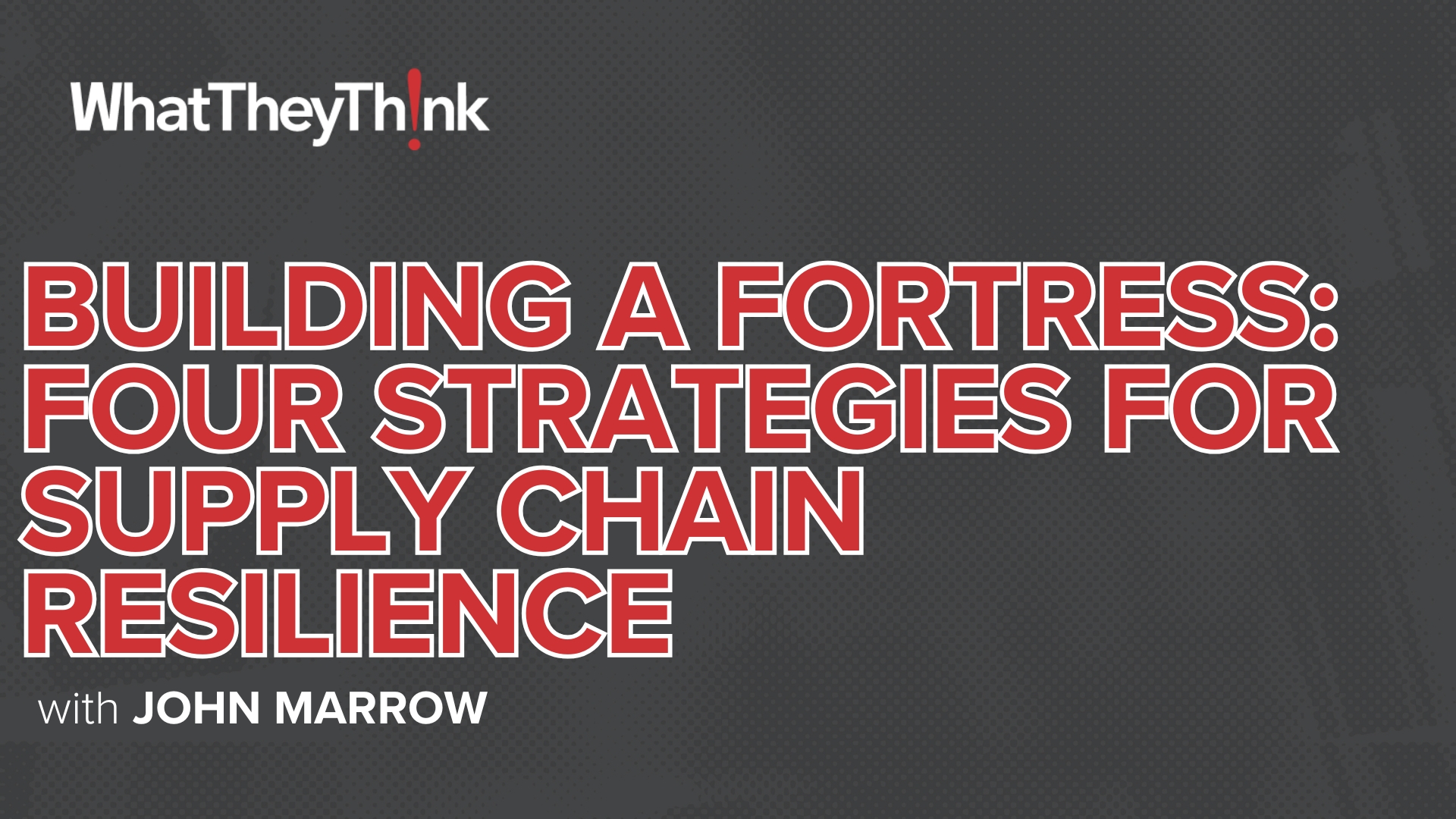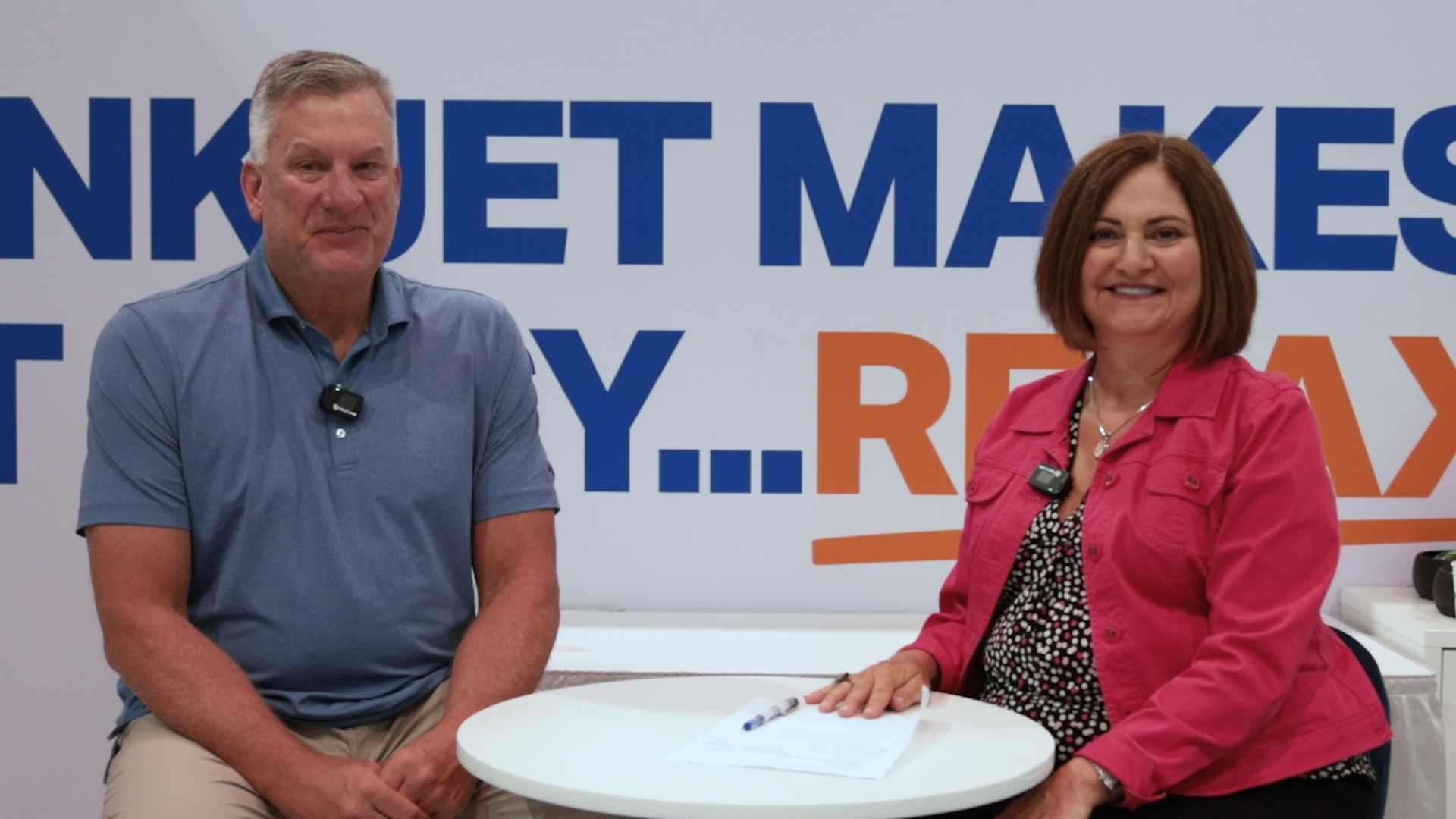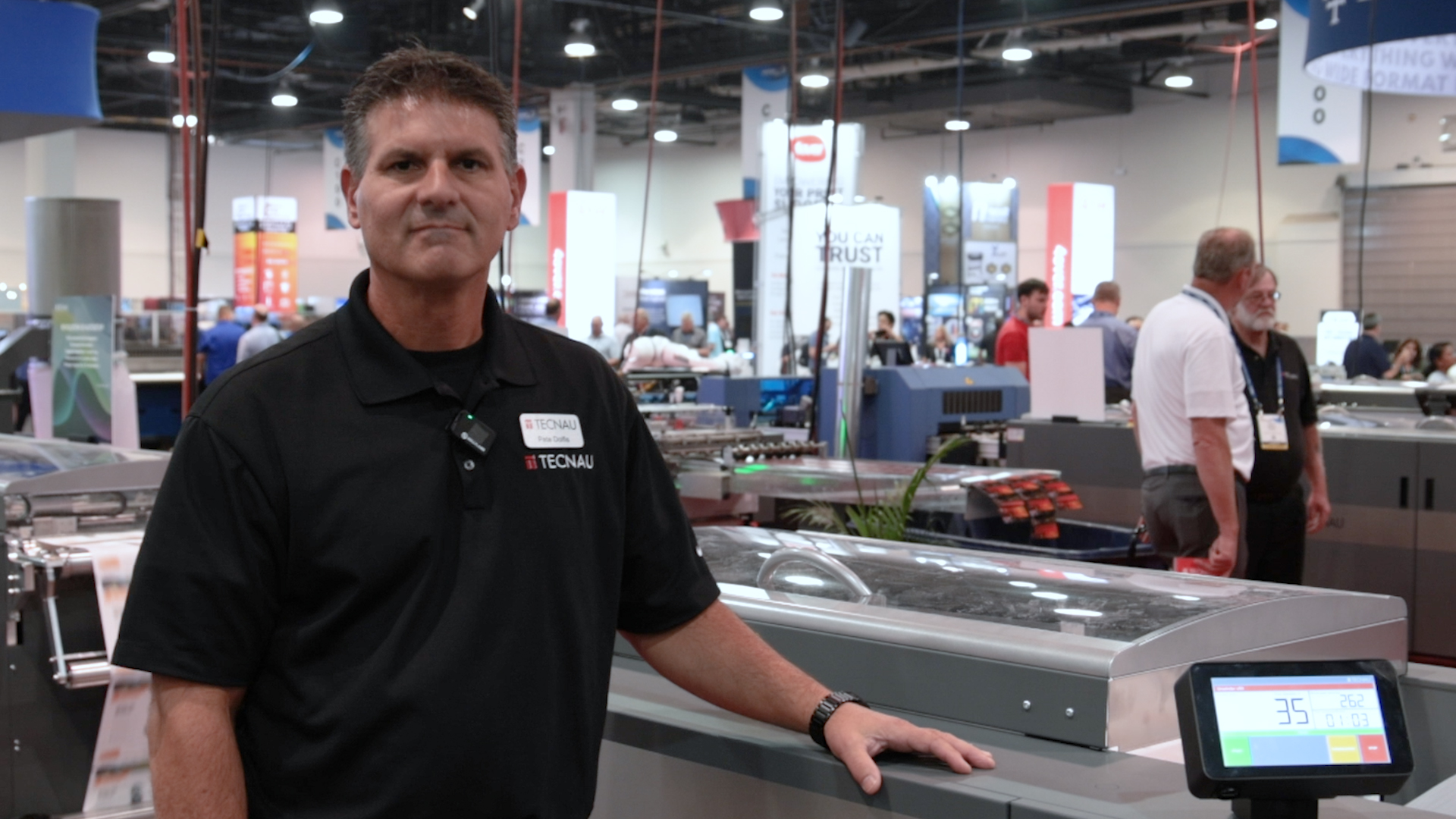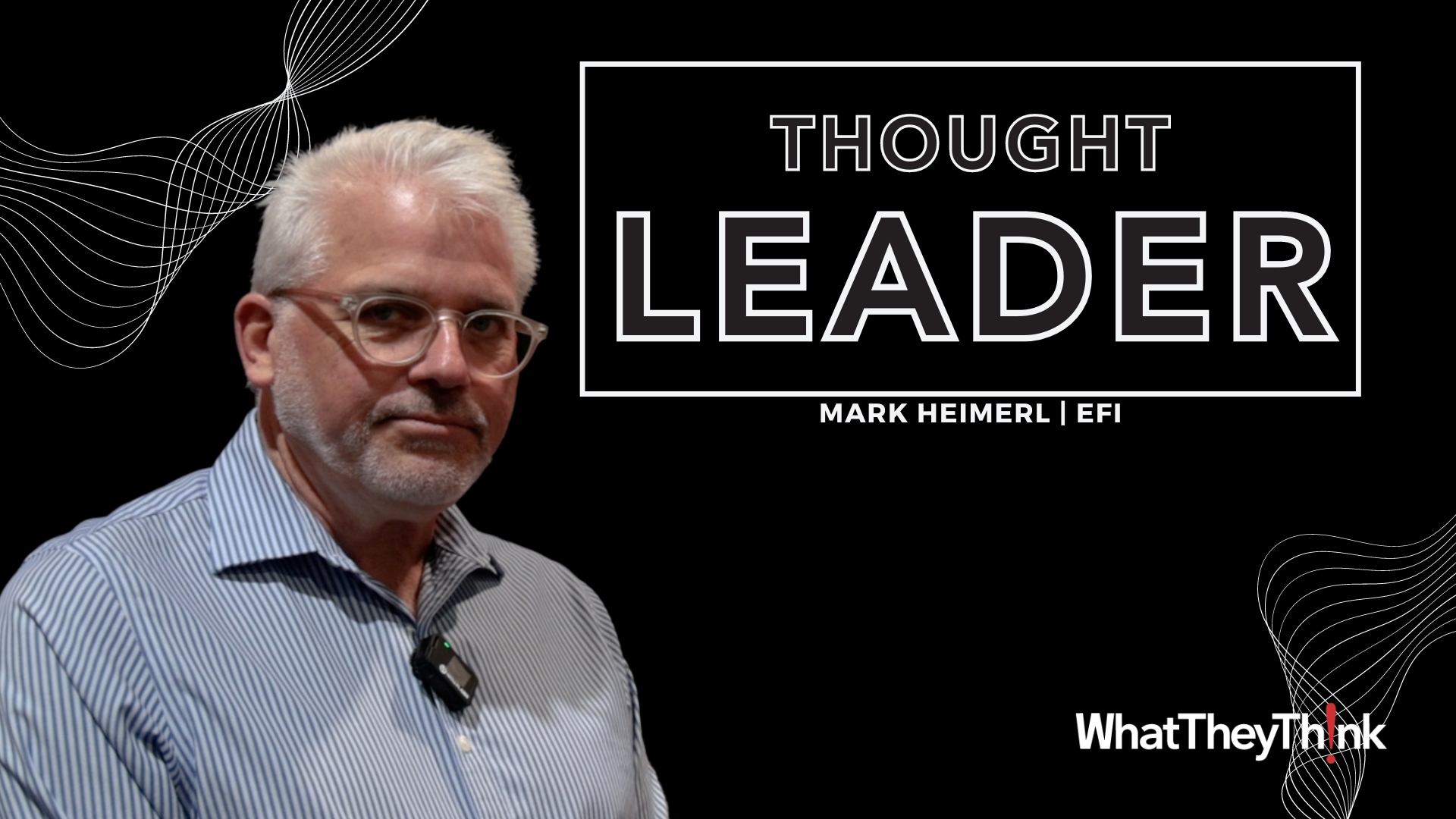Commentary & Analysis
Displaying 851-950 of thousands of articles
Insight You Need. Analysis You Trust.
Get the trusted insights you need to understand our evolving industry and emerging trends. Become a Premium Member.
The Graphene Council Speaks Out on the Current State of the Commercial Graphene Market
The Graphene Council recently hosted a webinar on the current state of the graphene market. Senior editor Cary Sherburne provides some highlights.
Other Paperboard Container Manufacturing Establishments—2010–2020
According to County Business Patterns, in 2020 there were 278 establishments in NAICS 322219 (Other Paperboard Container Manufacturing). This category saw a net decrease in establishments of -20% since 2010. In macro news, inflation is slowing but still high.
Around the Web: Palm Pic. Meta Morality. Paintbox Party. Copier Conductor. Booth Boon. Wired Water. Pasta Pile. Spaghetti Surge. Chip Choices.
Is the future of computing an AI-based wearable that projects its display in your hand? The Metaverse is no more, assuming it ever was. Quantel celebrates its revolutionary Paintbox. The Chicago Tribune press room sold to Bally’s to become a casino. Graphene nanotubes combine conductivity and durability in polyimide films used in copiers and printers. Shanghai is installing high-tech phone booths. A 3D-printed garden hose-to-HDMI adapter. “Regular internet use may be linked to lower dementia risk in older adults.” Hundreds of pounds of pasta mysteriously found by a New Jersey creek. Italy calls crisis meeting over surging pasta prices. Author of a book on grief is arrested for killing her husband. Lay’s is offering the BLT Sandwich chip. All that and more in WhatTheyThink’s weekly miscellany.
Artificial Intelligence and Its Promise for Print Automation
There’s no question that artificial intelligence is an exciting topic. This article strips away some of the hype and considers the ways it might impact the printing industry in the future.
Innovation, Technology, and Design Showcase the Future at Milan Design Week 2023
Milan Design Week is the final event in a European trilogy of fashion extravaganzas, which also includes events in Paris and London. In this article, compliments of textiles expert and WhatTheyThink contributor Debbie McKeegan, she provides event highlights, including a new vision of fashion success designed to be both circular and strategic.
Influencer Marketing Isn’t Just for Social Media Anymore
Discussion of influencer marketing is everywhere, and when you look at the numbers, it’s easy to see why. But is it relevant to the printing industry? The answer is yes. While we associate influencer marketing primarily with social media, there is an important role for print to play, as well.
Heidelberg: Game-Changing “Push to Stop” Flexo Carton Press
The new Heidelberg Boardmaster is the fastest and most productive flexo folding carton press in the market. It is the only industrial flexo press that is designed for zero changeover downtime. This is attributable to the Boardmaster Non-Stop Print Deck technology in conjunction with the Intellimatch precision scanning system, creating the first Push to Stop flexo folding carton press.
EFI Ignite: A Visit to EFI’s Londonderry N.H. Center of Excellence
As part of the media, Adam Dewitz, Richard Romano, and I were pleased to be invited to a recent EFI Ignite customer event. It gave us an opportunity to visit the (relatively) new EFI facility in Londonderry, which includes an expansive Customer Experience Center, manufacturing, and administrative/support services, and see the latest display graphics offerings from the company.
The Target Report: Sudden Drop-Off—April 2023 M&A Activity
All Quiet on the M&A Front (well, not entirely)…
March Shipments Maintain Seasonality—Make of That What You Will
March 2023 printing shipments came in at $7.18 billion, up from February’s $6.46 billion and in line with annual seasonality—even if it is below the previous two Marches.
Around the Web: Font Fest. Map Maven. Type Tasting. Picket Power. Button Boon. Fail Factory. Piece Puzzles. Befuddled Beltane. Titanic Tippling.
“36 Days of Type” wraps up. The David Rumsey Map Collection is an online database of more than 120,000 downloadable maps. Using a restaurant menu’s typography to anticipate food quality. Striking writers’ picket signs. Automakers are mercifully starting to replace touch screens with tactile controls. The Museum of Failure comes to Brooklyn. A graphene-based engine oil additive is said to improve fuel economy, power, and performance. How did chess pieces get their names? The origin of Beltane. A Titantic-themed distillery in Belfast is now open. Kit Kat breakfast cereal is now a thing. All that and more in WhatTheyThink’s weekly miscellany.
Direct-to-Film Printing Technology and Textile Applications Explored
DTF (direct-to-film) apparel printing is making a real impact on the decorated apparel market. Machine manufacturers now offer ever more successful industrial solutions for this growing technology that just a few years ago seemed to be the preserve of the small craft manufacturer. In a global market for DTG (direct-to-garment) printing that is predicted to reach nearly US$1.9 billion by 2032, the DTF process is gaining ground by the month—as it offers new and unique advantages to trade printers. Textiles expert and WhatTheyThink contributor Debbie McKeegan shares more information in this article.
HP’s Wide-Format Strategy Goes Beyond the Printer
WhatTheyThink managing editor Richard Romano talks to Daniel Martinez, General Manager, HP Large Format, about HP’s current wide-format strategy, market trends, and some recent product and new initiative announcements—in particular, a unique device for the architecture and construction industry.
Highlights from the 2023 Ad Impressions Study
It’s that time of year again—time to pick some highlights from the Advertising Specialties Institute’s “Ad Impression Study” and overall takeaways for the industry.
Three Easy Steps to Great Embellishment Projects!
Not every print project needs embellishment! Foil on my credit card statement seems over the top. But there are so many projects that deserve the pop and sizzle that is achievable with a bit of foil, some texture, a hologram, tinted or clear spot varnish, or float coats. But before you get excited, let’s do some planning.
Turnover and Employment in Print in Europe—Sweden
This bi-weekly series of short articles aims at shedding a spotlight on the size of the printing industry in Europe per country and how revenues and employment developed in 2020, when the pandemic impacted businesses. This time we look at Sweden, the 12th-largest printing industry by turnover in Europe.
The Dealer Conundrum: Why It Can Be Difficult to Bring Direct-to-Garment Solutions to Market—An Interview with Frank Mallozzi, President/CEO of the Center Reach Group
Many of our members will remember Frank Mallozzi for his more than 25 years of senior leadership roles at EFI. As he moves onto the next chapter in his professional life, he has taken on an important role as President and CEO of the Center Reach Group, which is a consultancy focused on helping companies design and develop go-to-market growth strategies, execute on strategic plans and optimize marketing efficiencies while increasing sales productivity. We recently spoke with Frank to get more insight into his current role, and also to discuss some of the barriers he is seeing to a more accelerated adoption of direct-to-garment printing in the North American market.
Folding Paperboard Box Manufacturing Establishments—2010–2020
According to County Business Patterns, in 2020 there were 546 establishments in NAICS 322212 (Folded Paperboard Box Manufacturing). This category saw a net increase in establishments of 11% since 2010. In macro news, Q1 2023 GDP shows third straight quarter of growth.
Around the Web: Paper Peril. Calendar Craze. Mayan Mystery. Ill-Advised Interview. Book Bits. Epson Enhancement. Powered Pawn. Gull Gig. Morphing Mallows.
A small local newspaper’s print swan song. A 90-year-old high school newspaper wrestles with paper prices. “The world’s most beautiful calendar.” Scientists have finally cracked the code of the Mayan calendar. A German magazine publishes a fake AI-generated interview with Michael Schumacher, for some reason. A shredded book designed to be read. Xerox donates the Palo Alto Research Center to SRI International. Seiko Epson invests in a company that develops brain-to-computer interfaces. The Light-Up Chess Set features pieces that are illuminated. England’s Blackpool Zoo is hiring a “seagull deterrent”—bird costume required. Color-changing marshmallows. All that and more in WhatTheyThink’s weekly miscellany.
Dye Sublimation Digital Print 2023 Review Q1: Part 1—Digital Print Machinery
The global digital textile printing market size which was valued at US$2,669 million in 2022 is expected to expand at a compound annual growth rate (CAGR) of 14.4% from 2023 to 2030 when it will reach US$8,957 million according to Grand View Research, and the use of dye-sublimation technology continues to grow. In fact, Grandview Research also found that 52% of all digital printing used dye-sublimation inks, making it the largest ink type by usage in the digital textile print sector. Learn more in this informative article compliments of textiles expert and WhatTheyThink contributor Debbie McKeegan.
What Do Younger Consumers Look for in a Financial Services Provider?
Even before recent economic challenges and well-publicized bank failures, consumers of all ages have been attracted to large national banks for their credit card loyalty programs and mobile capabilities. This article explores how today’s consumers—particularly younger ones—are managing their finances.
Do You Need a Change in Leadership to Drive Innovation?
What is it about the younger generation of print industry leaders that drives innovation? Both a native understanding and comfort level with cutting-edge technologies and not having grown up being told they “can’t.”
Inkjet Textile Printing: A Beginner’s Guide
This article is the first in a series on inkjet for textile printing. It is intended for companies not currently involved in textile printing other than signage. The goal is to assist companies to evaluate, optimize and grow their businesses using inkjet with a focus on roll-to-roll inkjet textile printing, choosing the best technology and equipment fitting their specific needs. It’s essential to consider the production process and its distinct but related stages getting the best results from a digital textile printer.
EU Packaging Sustainability Regulation and Impact
European section editor Ralf Schlözer looks at the potential growth of packaging waste, the European Union’s proposed Regulation on Packaging & Packaging Waste to help combat that growth, and the outlook for European packaging print.
Measuring Your Productivity
In Wayne’s last article, he discussed the difficulty of growing your business in the environment we are dealing with today. Growth creates new jobs. These jobs will be difficult to fill. Improving productivity to offset the shortage of talent is becoming the primary path to growing your business. Wayne ended the article with five things for reader’s to consider to move in this direction. He discusses the first one, measuring the productivity of your company, in this article. Read on…
Jim Continenza’s Recipe for Success
In this article, sponsored by Kodak, Inkjet Insight’s Elizabeth Gooding talks with Jim Continenza, the Executive Chairman and CEO of Kodak, about his decade with Kodak, his love of cooking, and how his approach to cooking and corporate management intersect.
Around the Web: Perishing Publishing. Garment Graphics. Edo Education. Tagging Tech. Canine Companion. Film Fest. Glorious Gate. Cosmic Consolidation. Colossal Candy. Soothing Signage.
The last two computer magazines stop publishing. A typeface designed for knitting. A new bioink for 3D organ printing. Library of Congress hosts a workshop on rare Japanese books. A robot designed to paint graffiti, for some reason. An AI-based robotic dogsitter. A graphene-based cardiac pacemaker. 16-millimeter fil turns 100 years old. The world’s greatest gate. The James Webb Space Telescope captures two galaxies merging. Russell Stover’s 5,000-pound box of chocolates. The therapeutic effect of power-washing street signs. All that and more in WhatTheyThink’s weekly miscellany.
February Printing Employment Essentially Flat
Overall printing employment in February 2023 was up 0.3% from January. Production employment was up 0.1% while non-production employment was up 0.7%.
The Importance of a Good Communication Design
More than ever before, today’s brand owners must carefully tailor their efforts to appeal to their customers’ unique buying habits. Brand owners must consider their messaging, design, and imagery in everything from postcards to marketing collateral. This article explores how a good communication design can lead to marketing messages that truly resonate.
Tradition and Innovation Collide at Decentraland’s Metaverse Fashion Week
In its second year, the Decentraland Metaverse Fashion Week, held in late March, demonstrated the newest advancements in digital fashion with a theme of Future Heritage. It was a global virtual event with more than 60 iconic brands, digital fashion houses, artists and independent designers showcasing their latest creations, leveraging the latest digital technologies for a fully immersive experience. To learn more, be sure to read this fascinating article from textiles expert and WhatTheyThink contributor Debbie McKeegan.
Utilizing CRM Tools to Sell Print
A CRM tool needs to deliver value to your sales team in the form of time savings or differentiation in how fast they can get quotes out to their customers.
How Customer Journeys Are Changing…And Print’s Role in It
As technology and social trends change, so does the customer journey. So where are we today? How does it impact the marketing mix? To get some insights, we can look to the Reimagining Retail podcast “What Today’s Customer Journey Looks Like,” which took a look at the topic. Aligned with the USPS’s most recent “Generational Report,” we can gain some particularly interesting insights.
Print Begins with Finishing
There is an old adage in the print industry that “print begins with finishing.” The story is that you can print just about any design, but if the design is not matched to the finishing, you will add time and effort to trying to bring them together. But take it a step deeper! Today’s finishing options are more diverse than ever before. Are you taking advantage?
Production Inkjet Evolution: Yesterday, Today, and Tomorrow
In 2011, I began a series that looked at the then-current production inkjet vendor product offerings and how they were being, or could be, used. Since then, I have been following them through their drupa 2008, 2012, and 2017 journey. In this new series, 15 years later and with drupa 2024 on the horizon—after a seven-year forced hiatus—it’s time to take another look at how production inkjet has evolved, where it is used, and where we can expect it to go. I will look at each of the production inkjet manufacturers, customers, and their journeys.
Turnover and Employment in Print in Europe—Belgium
This bi-weekly series of short articles aims at shedding a spotlight on the size of the printing industry in Europe per country and how revenues and employment developed in 2020, when the pandemic impacted businesses. This time we look at Belgium, the ninth-largest printing industry by turnover in Europe.
Looking Ahead to FESPA 2023
Cary Sherburne previews the upcoming FESPA Global Print Expo and European Sign Expo 2023 , scheduled for May 23 to 26 in Munich.
Tales from the Database: Beyond Commercial
The latest installment in our “Tales from the Database” series looks at historical opportunities and investments related to adding not only things like wide-format printing and textile printing capabilities, but also packaging as well as other types of specialty printing.
Around the Web: Popping Publications. Handle Hoard. Dickens Drawings. Cleaner Cans. Computer Cookies. Coronation Conundrum. Noun Nomenclature. Container Crash. Fold Fanatic. Can Camping.
A pop-up book exhibit at Chicago’s Newberry Library. A 1,100-page pictorial showcase of door handles from around the world. A complete online collection of illustrations from Dickens’ novels. Making craft beer cans more recyclable. AI is now writing fortune cookie fortunes. Pending coronation, King Charles declines a Burger King crown. Where did colorful terms for collective nouns (like a gaggle of geese or a murder of crows) come from? The James Webb Space Telescope looks at the remains of a supernova. Tupperware’s days may be numbered. Mad magazine’s Al Jaffee dies at 102. This summer, camp in a national park in a giant can of beans. All that and more in WhatTheyThink’s weekly miscellany.
Categorically Embellished
Finishing and embellishment experts Kevin Abergel and Trish Witkowski compile an overview of the major (and some minor) types of embellishment across the board of production processes, from analog to digital, narrow-format to wide, and most things in between.
Johnson’s World: Kudos
Steve Johnson offers kudos to two stellar examples of variable-data printing, truly personalized with useful information.
Print Takes Shape for Wide-Format Applications
In today’s printing shops, making the cut begins with sharp blades and ends with precise routing. Mark Vruno looks at today’s cutting tables for wide-format finishing.
Just Stick It: Materials for Applied Graphics Allow Solutions Anywhere
If you have been out in the world at all, you know that the number of surfaces to which graphics can be applied is only limited by the number of surfaces there are—which is to say that display graphics can be applied just about anywhere: walls, windows, doors, streets and sidewalks, 3D objects, vehicles—name it. Despite the overwhelming variety of graphics applications, some general trends are emerging, and some older trends are becoming more important.
Up In Smoke: Another Take on Carbon Capture
Carbon capture and storage: a solution to the climate crisis or an elaborate smokescreen to preserve the status quo? Senior editor Cary Sherburne takes a close look at the current state of CCS.
Stepping up Sales: How Floor Graphics are Transforming Retail Spaces
While much of the fanfare in wide-format graphics goes to signs, banners and floor displays, floor graphics have a powerful track record of sales lifts, too. Heidi Tolliver-Walker looks at some case studies on the effectiveness of floor graphic advertising.
Case Study: etic.a Switches Entire Operation to UV LED Curing
This latest customer case study, written and sponsored by GEW, looks at a successful label printing company on the outskirts of Rome. etic.a was founded in 2009 by Gianni Olivieri and his wife Patrizia. The company now employs around 35 people, generating a revenue of around 10 million euros. Find out why they switched their entire operation to UV LED curing.
FASTSIGNS Eugene, Ore., Goes the Distance in This Year’s FASTSIGNS Project of the Year
The winner of this year’s FASTSIGNS/Wide Format & Signage Project of the Year is FASTSIGNS Eugene (Ore.), whose work for the World Track and Field Championships went the distance in the eyes of the judges.
Katsuhiro “Jerry” Matsufuji Shares Canon U.S.A., Inc. Updates
imagePRESS V-Series represents next-generation innovation based on ground-up development efforts, and PRISMA solution developments include strategically migrating components to the cloud. Cary Sherburne talks to Katsuhiro “Jerry” Matsufuji, Canon U.S.A., Inc. vice president and general manager, marketing BICG.
Voice of the Customer: Workflow Optimization and Partnerships Driving Inkjet Investments
Screen’s customers across print segments spoke at Hunkeler Innovationdays about their goals for workflow automation and their quest for innovation to serve customers. Screen is strong reliable partner that listens to their challenges and provide superior innovations and solutions.
Executive Q&A: Canon’s Rich Reamer
The Senior Marketing Director of Canon USA’s Business Information Communications Group (BICG) talks to WhatTheyThink about the evolution of wide-format printing and the breadth of Canon’s offerings for display graphics providers.
Overcome the Paper Problem: Three Opportunities for Wide-Format Business Growth in 2023—Plus Four Tips for Success
Over the pandemic, more and more printers expanded into the wide-format space, feeding a high demand for health and safety signage, amidst a growing inability to source paper. Today, you’d be tough-pressed to find a printing company that doesn’t offer some sort of wide-format solution, either in-house or outsourced.
Voice of the Customer: Workflow Automation Driving Inkjet Investments
Three Ricoh customers share their approach for labor challenges by investing in workflow, finishing automation, software integration and faster equipment. Service providers are focused on growing with new inkjet and finishing capabilities to meet customer demands.
The Target Report: Blueprint for Convergence—March 2023 M&A Activity
Crisp Imaging Adds to West Coast Network; and more…
Canon Launches the New Colorado M-Series: Now with White!
Today, Canon is introducing the next-generation Colorado wide-format printer: the M-series. The “M” stands for modular, and among its many other features is that it now supports white ink. Managing editor Richard Romano attended a recent Canon event introducing and demonstrating the new printer line.
Around the Web: Cool Keyboard. Meat Medley. Cuttlefish Camo. Logo Loathing. Logo Listening. Waffle Work. Telekinetic Tech. Peanut Predicament. Diminutive Dryer. Sweet Sweater.
A transparent keyboard with mag-lev keys. Mathematicians have just identified a 13-sided shape that had only existed in theory. Researchers and a printing company form a consortium to develop 3D-bioprinted meat. Scientists use recovered DNA from an extinct species to cultivate a “mammoth meatball.” “Human cells hacked to act like squid skin cells could unlock key to camouflage.” An iconic logo was redesigned and (surprise) the Internet was not happy. The Wikimedia Foundation’s new sound logo is “the sound of all knowledge.” A painting called “Starry Waffles” combines Van Gogh and the Waffle House. Graphene-based brain–machine interfaces let you control things with your mind (bwa-ha-ha!). Peanut butter is apparently a liquid? A new Pop-Tart flavor—and tie-in sweater. All that and more in WhatTheyThink’s weekly miscellany.
Corrugated and Solid Fiber Box Manufacturing Establishments—2010–2020
According to County Business Patterns, in 2020 there were 1,086 establishments in NAICS 322211 (Corrugated and Solid Fiber Box Manufacturing). This category saw a net decrease of 20% since 2010. In macro news, Q4 GDP was revised down.
Designing and Building a Designer Brand Solo: Meet Sarah Thorley and Her Brand Pink Tiger Design
Today we are sharing another “Meet the Designer” story compliments of textiles expert and WhatTheyThink contributor Debbie McKeegan. Sarah Thorley is a recent graduate of Bolton University BA(Hons) Textiles and Surface Design and was recognized in the Green Grads-ECO STORIES Textile Challenge. Learn how Sarah is leveraging technology in developing her product range and how she is learning about commercial life in real time (as a solo designer) in a challenging marketplace with her Pink Tiger Design brand.
Manual Steps are Piling Up in Customer Service
When the power dynamic is uneven across the functional areas of your print business, more powerful areas (production and sales) tend to shift manual steps to the less powerful areas (customer service).
Study: European Consumers’ Attitudes Towards Personalization
Moengage’s “Personalization Pulse Check” (2023) gives us insight into what European consumers think about personalized communications—what they prefer, what they are comfortable with, and what differentiates one brand from another. Stay tuned for pulse checks from other regions, including North America.
Growing Through Difficult Times
Having looked at the labor shortage problem from different perspectives in recent articles, Wayne Lynn gives his thoughts on root causes and how they still impact our companies going forward. The most difficult problem we face may well be trying to grow in the coming decade. Read on and see why Wayne thinks this could be our coming reality.
Product Spotlight: Ultraflex EcoVantage Films
Ultraflex’s EcoVantage line of comprises 100% PVC-free and phthalate-free films for outdoor advertising, POS, wall coverings, and retail displays that are frontlit, backlit, blockout, mesh, indoor, outdoor, and wallcoverings.
Diversification Beyond Signage—The New Challenge for Wide-Format Print in the US
According to the new Smithers report—"The Future of Printed Signage in a Digital World to 2028”— that global value for wide-format and signage applications in 2023 will reach $40.99 billion—down around $5 billion on pre-pandemic value (constant prices). Across the same period the volume of printed signage has fallen, as well. However, the demand for textile and interior design graphics are increasing, providing the main diversification options for wide-format presses.
ISA International Sign Expo Returns to Mandalay Bay with Upcoming Las Vegas Show
For the first time since before the pandemic, the ISA International Sign Expo is heading to its West Coast home at the Mandalay Bay Convention Center in Las Vegas, April 12–14. The Sign Expo is ever-evolving, and this year’s event will boast some new features, as well as some recurring favorites.
The Wild West of Graphene: What’s Real and What’s Not
Graphene was discovered in 2004, has been described as a miracle material, and its discoverers were awarded the Nobel Prize in Physics in 2010 as a completely new material. We’ve written about graphene before, and usually there’s a graphene item in our weekly Friday Around the Web feature. But for more depth, this article reviews a recent study on products claiming graphene content and also encourages materials suppliers and manufacturers to do their due diligence and to seek certification that their materials and/or products actually include graphene. Spoiler alert: 80% of the products tested had no graphene content!
Kicking Off 2023: Best Shipments Since 2020
January 2023 printing shipments came in at $6.67 billion, the best start to a year since 2020.
Around the Web: Period Pause. Element Etymology. Dessert Deposition. Musical Manhole. Garrulous Graphene. Chatbot Chatter. Carbon Carats. Rodent Rack. Arthur Anew. Toy Trouble.
On Monday, March 20, we started a 10-day run of palindrome dates. Who killed the period in the New York Times nameplate? How did the chemical elements get their names? A new printer for 3D-printing chocolate. Scientists 3D-print cheesecake. In Hannover, Germany, a musical manhole cover. A graphene-based artificial throat helps the voice-disabled speak. Two AI chatbots are now citing each other and the results are not positive. Using captured carbon to make diamonds. Scientists grow antlers on mice, for some reason. A new production of “Camelot,” with a book written by Aaron Sorkin. Can you tell the difference between a whiskey bottle and a dog toy? All that and more in WhatTheyThink’s weekly miscellany.
Kyocera Takes the Fast Track to Industrial Print with the Acquisition of NIXKA
Kyocera’s intention is clear: they are moving into the production print industry, and while they may be new to this market, NIXKA isn’t. They actually have 30 years of expertise in developing ink and material jetting solutions, with an impressive track record. This acquisition should help fast track them to their intention.
Digital Textile Printing as a Service: How the Third-Party Print Fulfilment Business Model Is Democratizing the Industry
Digital textile printing has grown more slowly than projected, but an emerging new business model perhaps promises a boost to that growth. In this new model, digital printing as a service, the digital print enterprise offers a managed virtual shop for the designer, where their designs and styles are presented online to the public, but where all the shop functions, comprising order handling, payment processing, digital printing, and drop-ship delivery are handled by the digital printer. Learn more about this trend in this article provided by textiles expert and WhatTheyThink contributor Debbie McKeegan.
Quantum Leaps into Landa
Last week, Morton Grove, Ill.’s Quantum Group and the executive team from Landa Digital held an open house to demonstrate the recently installed Landa Nanographic S10P—and how Quantum Group is starting to shift work from their fleet of digital and offset presses to the S10P.
Beach to Bay Heritage Area Uses Augmented Reality to Tell Its Stories
The Beach to Bay Heritage Area is one of Maryland’s 13 designated historic areas, and has started using AR holotwins to tell the stories of the historic areas promoted and protected by BBHA and to more deeply engage with those who come to visit them.
HP Indigo Doubles Down on Digital Flexible Packaging with the 200K
Now that the market for digital production of flexible packaging is starting to take hold, HP has developed the next generation of product that builds on the expertise gained with the 25K as well as their other products and technologies.
Turnover and Employment in Print in Europe—The Netherlands
This bi-weekly series of short articles aims at shedding a spotlight on the size of the printing industry in Europe per country and how revenues and employment developed in 2020, when the pandemic impacted businesses. This time we look at the Netherlands, the seventh largest printing industry by turnover in Europe.
Why You Need a Website Assessment: Every Page is Your Home Page
Websites are the company face to the world, but they often miss the scrutiny that our workflows get when it comes to efficiency and optimization. Start the year with a plan to assess your website to see if it still meets your needs and works for your visitors.
Around the Web—Folio Fest. Doom Display. Russet Wrap. Graphene Gear. Brick Boon. Face Folly. Enzyme Energy. Goat Gardening. Marenghi Mania. Noodle Napping. Ranch Revulsion.
The 400th anniversary of the publication of Shakespeare’s First Folio. San Francisco’s new “Museum of the Future AI Apocalypse.” Compostable, potato waste-based cling film. Graphene-based sportswear from Umbro. Slack adds ChatGPT because why not? The world’s most disturbing videoconferencing display. Scientists discover how bacteria convert atmospheric hydrogen to energy—a potential new, clean power source. Goats are the secret to combatting California’s wildfires. Celebrating “Garth Marenghi’s Darkplace.” Four words that should never be used together: Hidden Valley Ranch Ice Cream. All that and more in WhatTheyThink’s weekly miscellany.
Paperboard Container Manufacturing Establishments—2010–2020
According to County Business Patterns, in 2020 there were 1,910 establishments in NAICS 32221 (Paperboard Container Manufacturing). This category saw a net decrease of 13% since 2010. In macro news,inflation is sort of moving sideways.
Print: A Surprisingly Effective Way to Engage Younger Consumers
Today’s brands have more ways than ever to connect with and engage their intended audiences. Meanwhile, consumers also have an array of options for staying in touch with their favorite brands. Print may be uniquely positioned to cut through the digital clutter and prompt so-called digital natives to engage and take action. This article explores how generational differences can affect consumers’ preferences when interacting with printed communications.
Stepping Over Dollars to Pick Up Pennies
We tend to discount the time of our full-time employees because we are paying for it already—looking at them like sunk costs. So, when we ask them to do things that are non-value add (aka a complete waste of their time), we don’t see it as a cost. Well, it has real costs.
Do Forest-Growth Numbers Tell the Whole Story?
If the number of trees in the United States is growing, where is this idea coming from that there are not enough trees? Is it possible that certain reforestation data don’t tell the whole story?
Hunkeler Exploring New Post-Processing Markets at Innovationdays
European section editor Ralf Schlözer reports on Hunkeler's finishing solutions launched at this year Innovationdays.
Aptean ERP for Apparel Manufacturing Delivers Key Insights in 2023 Report
The fashion industry is in need of radical transformation in order to reduce its deleterious effect on the environment, including excessive wastewater, carbon emissions, impact on landfills, and more. In this article, we review a recent study produced by Aptean, which approaches the problem from the perspective of the value of an effective, purpose-built ERP, but we also note that the industry must go beyond that with a holistic view of the entire life cycle of its products in order to have any hope at all of meeting aggressive 2030, and even 2050, sustainability goals.
Around the Web: Mail Magazine. Lame Logo. Typing Tome Two. Mining Microbes. Edible NDAs. Tofu Trouble. Kinetic Cake. Rex Renting. Cool Carpet.
Subscription-based digital magazine company Air Mail plans a print edition. The controversy over Nokia’s new logo. More online fun c/o the new book “Shift Happens.” A highly usable E Ink typewriter. Bacteria can absorb rare earth metals, making recovery quick and easy. Edible graphene health monitors. NDAs in pill form that can be ingested after use. A Maine vegan runs into trouble with a misinterpreted license plate. An animated “caketrope.” Rent a dinosaur for your next party. All that and more in WhatTheyThink’s weekly miscellany.
January Production Employment Down
Overall printing employment in January 2023 was down -1.7% from December, due entirely to a -4.2% drop in production employment, as non-production employment was up +4.1%.
Making Your Business Future-Ready
The first principle of managing your human assets (talent) is to put qualified people in jobs they are behaviorally suited to perform. Sounds hard but it’s easier than you might think if you do it the right way. In this article, Wayne Lynn shows how to take the first step in the process of preparing the people side of your business for the future.
Designer Q+A: Meet Estelle Pearce, The Super-Talented Digital Fashion Designer Using Tech to Push the Boundaries of Fashion Design
Leeds Arts University graduate Estelle Pearce, who earned a Masters in Digital Fashion, was selected to showcase her work at Digital Fashion Week New York and London Fashion Week. She works in both physical and digital media and has more than 15 years’ experience in the fashion industry. In this interview, compliments of textiles expert and WhatTheyThink contributor Debbie McKeegan, we learn more about her work and how she utilizes technology to explore her creativity.
ChatGPT Tackles Floor Graphic Research and Case Studies
Continuing WhatTheyThink’s investigation into AI writing assistants, we took another look at ChatGPT’s ability to research industry-relevant topics. This week, we tested its ability to retrieve highly specific information such as research and case studies.
The Target Report: Duking it Out in the Label Business—February 2023 M&A Activity
Resource Label, Brook + Whittle and Inovar Acquire; and more…
Hunkeler Innovationdays: Innovation and Excitement
Hunkeler Innovationdays 2023 was a resounding success for the partners, the attendees, and the industry at large. The theme of the event was Next Level Automation and it was displayed in every solution on display at the event. Importantly, it is also a sign that the industry as a whole is on the right track.
Thinking About Websites: Every Page is Your Home Page
When was the last time you looked at your website? How easy was it to find information? Were the pages formatted consistently. Was the information current? In this missive the focus is on the value of regular reviews of your face to the world. Next time the focus is on how to approach a website assessment project.
Print Turnover and Employment in Europe—Spain
This bi-weekly series of short articles aims at shedding a spotlight on the size of the printing industry in Europe per country and how revenues and employment developed in 2020, when the pandemic impacted businesses. This time we look at Spain, the fifth largest printing industry by turnover in Europe.
DocketManager Aims to Help Customers Spend Time on Profitability: An Interview with Jay Farr
You may remember Jay Farr who founded ePACE in 1985, a mid-range print MIS solution and the first browser-based MIS, that was ultimately acquired by EFI in 2008 (now eProductivity Software). Following his commitments to EFI pursuant to the terms of the acquisition, Jay continued to be a presence in the Print MIS business, and in 2016, became an investor and the VP of Business Development for DocketManager. We recently spoke with Jay to learn more about this unique MIS solution.
Internet Publishing and Broadcasting and Web Search Portal Establishments—2010–2020
According to County Business Patterns, in 2020 there were 8,947 establishments in NAICS 51913 (Internet Publishing and Broadcasting and Web Search Portals). This category saw a net increase of 66% since 2010. In macro news, early forecasts of Q1 GDP are running slightly bearish to slightly bullish.
Around the Web: Defogging Dickens. Device Disorientation. Volcano Volume. Silly Spectacles. Denim Defense. Snow Sobriquet. Fruit Fiasco. Vicious Vehicle. Deafening Duet.
A new London exhibition looks at Charles Dickens’ relationship with fog. Antibacterial graphene-infused socks. Digital natives can have trouble operating office equipment. “The singular natural event that caused the loudest sound in the world.” A history of “Groucho Glasses.” “Air bag jeans” for motorcyclists. The winners of Madison, Wis.’s snowplow naming contest. An airline’s “vegan meal” consists of a single banana. Starbucks is adding olive oil to coffee, for some reason. Ford’s patent for a “repossession system computer” is the dystopian future of driving we don’t need. A duet for piano and car alarm. All that and more in WhatTheyThink’s weekly AI-free miscellany.
Is Print a Commodity?
Most businesses in the printing supply chain want to believe that print is not a commodity, and that print buyers will typically make purchases based on value rather than price. According to recent research of print buyers by Keypoint Intelligence, however, price is indeed a powerful factor that can motivate the print purchasing decision.
Digital Textile Industry Growth Accelerates
After seeming to stall for some time, the digital textile industry is now projected to grow by 14.4% to 2030 according to Grand View Research. In this article, compliments of textiles expert and WhatTheyThink contributor Debbie McKeegan, we recap the research and why it is important to the industry and to the planet. The growth will be driven by the success of web-based on-demand business models—the urgency of the sustainability agenda—and the sheer economic efficiency of digital textile printing, according to the research.
ChatGPT Talks Paper Alternatives
ChatGPT seems to be everywhere these days, and much of the discussion revolves around whether it will replace human writers. Much less discussed is its value for research and idea generation. So WhatTheyThink applied ChatGPT’s capabilities to the paper shortage.
Deciding What’s Important
In a print plant, it is easy to come to work and fall into the drama of getting jobs out the door. There is always something you can focus on in your day-to-day work life. The art of moving your business forward happens when you direct your focus to areas of your business that you can impact the most.
Three Trends in Experiential Design for 2023
Design firm SOSO recently identified three major trends in “experiential design” for 2023. Experiential design is where signage and décor meet, and experiential graphics have been a hot application area for signage and display graphics producers. What are these top trends to keep an eye out for?
Media and Journalism Predictions for 2023
Every year, the Reuters Institute for the Study of Journalism publishes a global report on Journalism, Media, and Technology Trends and Predictions. European section editor Ralf Schlözer culls some implications for the printing and publishing industries.
Fungus Among Us?
How much fungi do you expect to see in your future? There is a tremendous amount of research and development ongoing to develop various forms of fungi—including mushrooms and their “roots,” mycelium—into replacements for everything from meat to leather and more. Read on!
WhatTheyThink Remembers O.Mike Fichera
Orazio “O.Mike” Fichera, founder of Dealer Communicator, passed away on January 17, 2023, at 91. WhatTheyThink contributors remember O.Mike.
Hooray! 2022 Shipments Outpaced 2021
December 2022 printing shipments came in at $6.97 billion, down from November’s $7.10 billion. But January-to-December shipments for 2022 came in at $83.47 billion, an improvement over 2021’s $82.05 billion.
- Questions to ask about inkjet for corrugated packaging
- Can Chinese OEMs challenge Western manufacturers?
- The #1 Question When Selling Inkjet
- Integrator perspective on Konica Minolta printheads
- Surfing the Waves of Inkjet
- Kyocera Nixka talks inkjet integration trends
- B2B Customer Tours
- Keeping Inkjet Tickled Pink
© 2024 WhatTheyThink. All Rights Reserved.














